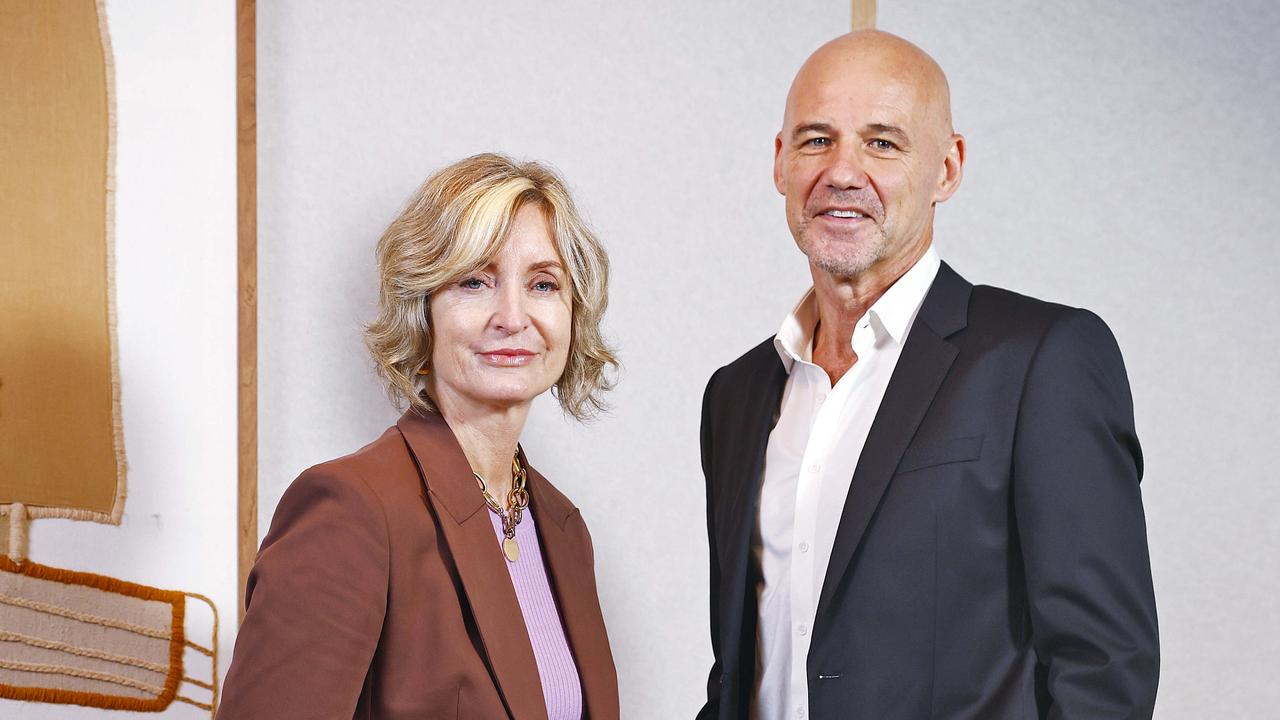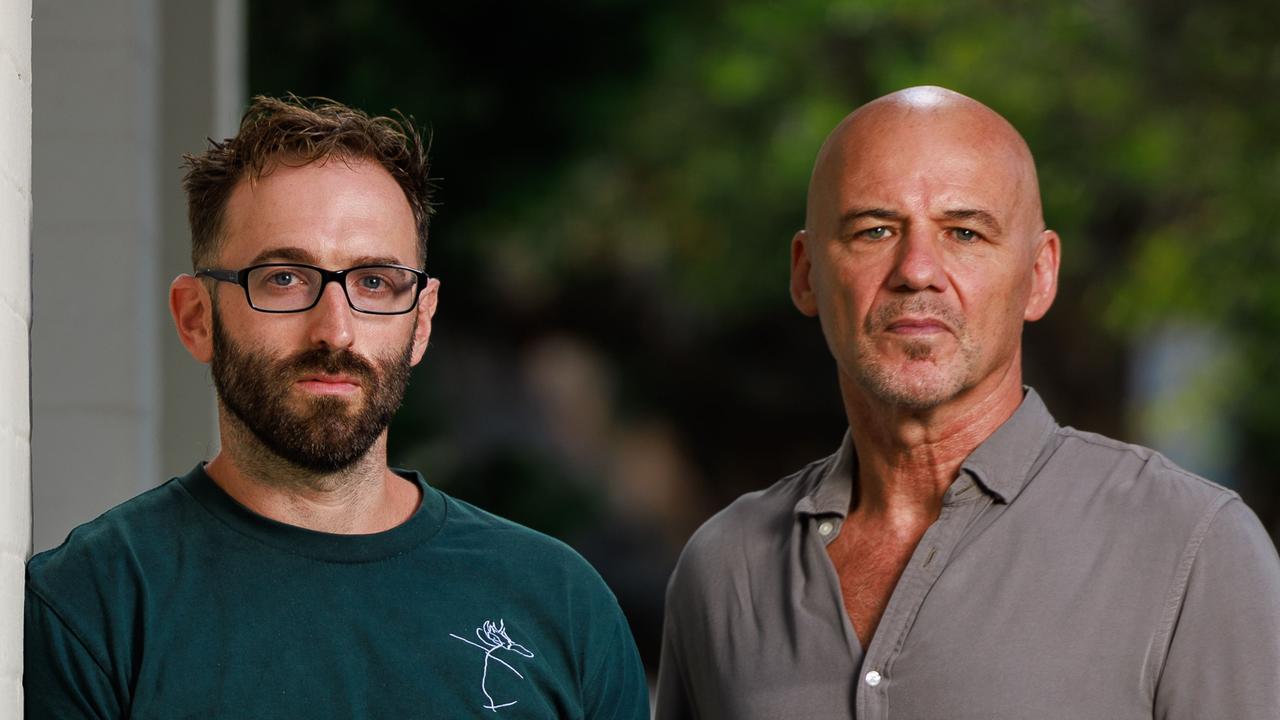I Catch Killers: Gary Jubelin interviews Deb Wallace from Strike Force Raptor
Known as the “Gangbuster” Deb Wallace spent her career bringing down some of the country’s most violent criminals. She opens up to Gary Jubelin in I Catch Killers.
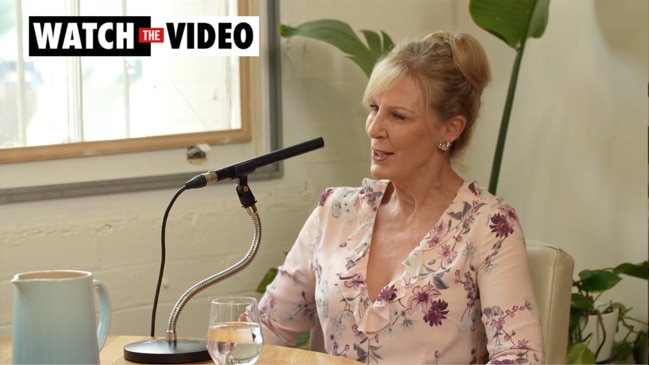
I Catch Killers
Don't miss out on the headlines from I Catch Killers. Followed categories will be added to My News.
There is a famous photo that did the media rounds in 2015 of outlaw bikie gang members lying handcuffed and face down outside their Sydney clubhouse after being busted by members of NSW Police’s Strike Force Raptor.
A second image of that mass-arrest also exists, a separate frame of a woman immaculately dressed in yellow and wearing stilettos, looking somewhat out of place behind the patched up gang members and the huge, intimidating frames of the police on the scene in this industrial backwater.
Known as “Madam”, “The Smiling Assassin” or “The Gang Buster” the photo sums up Deb Wallace, the former detective superintendent and head of Raptor, who spent most of her long and distinguished career breaking up criminal gangs.
EXCLUSIVE: As a subscriber you have early access to Season 2 of I Catch Killers with Gary Jubelin. Immediately below are Parts 1 and 2 of his interview with Deb Wallace.
Part 1 (above): In the early part of her career Deb Wallace played a key role into the Anita Cobby murder investigation before she developed her unique policing method on the streets of Cabramatta where she took on the dangerous 5T gang.
Part 2 (above) As the head of Strike Force Raptor Deb Wallace has left a lasting legacy on the streets of Sydney by bringing down scores of Outlaw Motorcycle Gangs. This is how she did it.
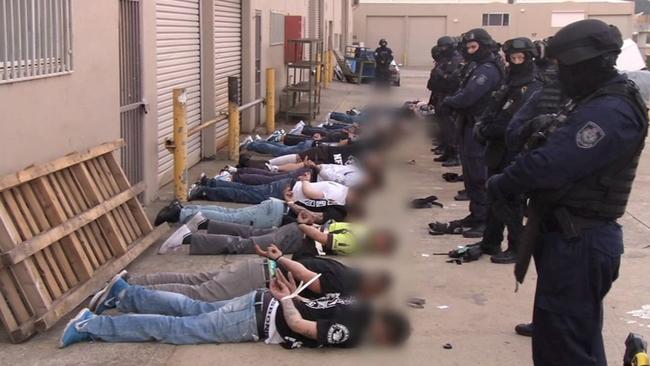
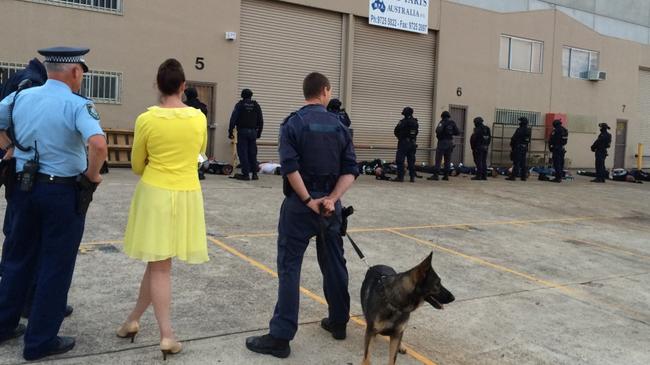
It was Wallace who would have made the call to execute the raid on the Nomads clubhouse during their monthly “church night”, which resulted in 13 arrests. While she was not required to attend the bust, this is how Wallace liked to do her police work – by spending as much time out of the office and on the ground as possible, letting crooks know that she would not relent.
And she did it all with an unmistakeable touch of style.
As former head of the South East Asian Crime Squad, the Middle Eastern Organised Crime Squad and the Gang Squad there is nobody as well versed in organised criminal activity in Australia as the dynamic Wallace who retired after 37 years last year and has just released her book “ A Woman of Force”.
Not a bad resume for someone who tells Gary Jubelin in a fascinating interview as part of his “I Catch Killers” podcast series that she “would have been happy to be in uniform for the rest of my life” when she started in Blacktown in 1983.
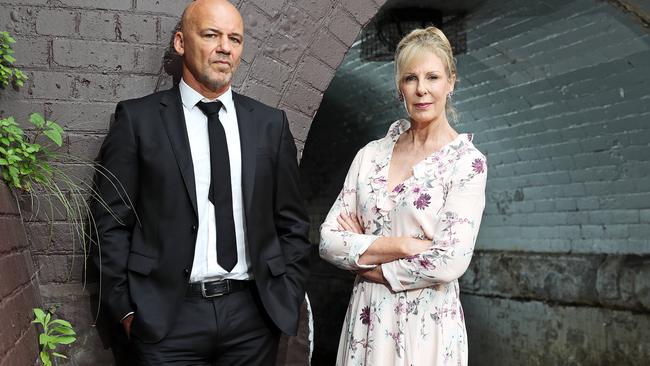
It was a career that took her from a central role in the Anita Cobby murder investigation to the drug-fuelled streets of Cabramatta in the 90s and rising up the ranks to become one of the most respected cops in NSW.
She also had to contend with the death of Bill Crews, a member of her team, who was shot accidentally by a fellow officer during a raid. The tragedy has never left her.
However, it was with the Gang Squad and its proactive arm, Strike Force Raptor, that Wallace’s legacy is still being felt. More than 70 Outlaw Motorcycle Gang clubhouses closed during her tenure using a combination of tactics from the strongarm of Raptor, intelligence, detective work and legislation.
A student of Sun Tzu’s Art of War for Wallace it was all about knowing your enemy so she and her team could strike at the “heart of the culture” of OMCGs and eliminate the romance of the bikie world.
Wallace tells Jubelin that an early whiteboard session with the Gang Squad team in 2014 got her and her team thinking about alternative ways to take down outlaw bikies.
“(I learned) they like clubhouses because they like to hang out, they like to wear colours because they can intimidate people, they like to go on national runs which means they all get together and ride down the highway,” Wallace recalled.
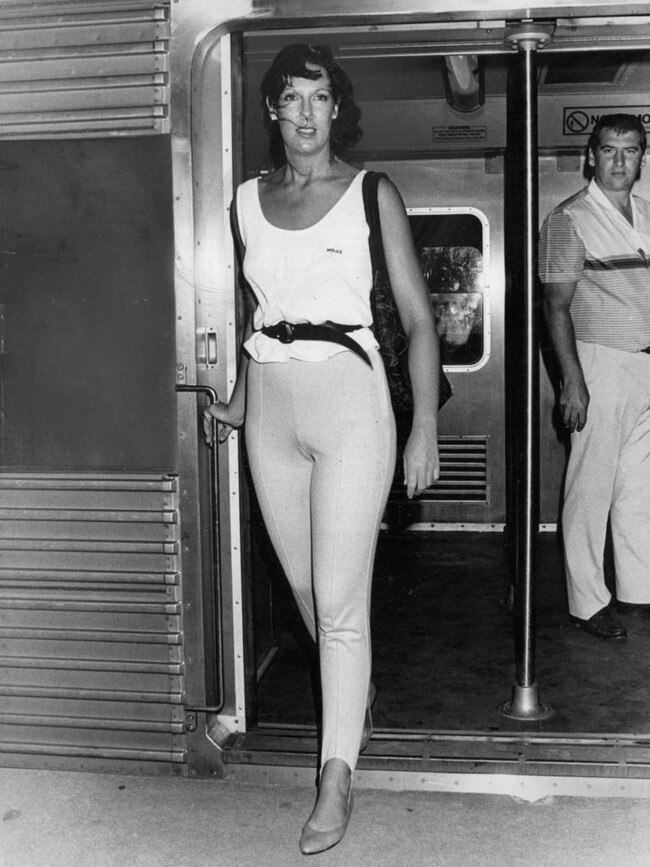
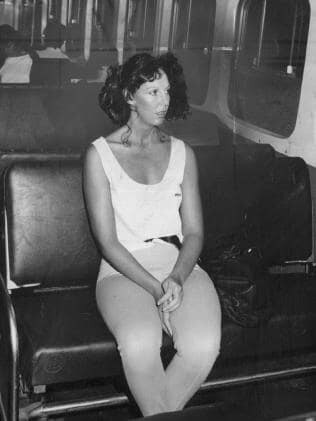
“They like to own tattoo parlours, they like to intimidate, they like to extort people so I’m drawing on (others) and starting to get a visual picture of these people, their history and why they belong.
“I threw it open to the (floor) and said: ‘Why don’t we just take out everything that they like? Can we do that, do you think?’”
It turned into one of the most transformative moments in the policing of crime in NSW.
There was a crackdown on the illegal sale of alcohol which allowed police to raid clubhouses, consorting laws prevented criminals associating with one another and legislation put an end to bikies controlling tattoo parlours as they were not considered “fit and proper” owners.
“We’ve gone through clubhouses and then taken everything that represents the things that are dear to them,” Wallace said
“You’re using powers that really hit them hard where it hurts. So you take the alcohol, you take the emblems, you take the stripper pole.
“We made them think, ‘Well, hang on a minute, what’s the point of being a bikie? I can’t really hang out with a mate, I can’t go to the clubhouse, I can’t run a tattoo parlour, I can’t be engaged in UFC or combat sport, the romance of being a bikie is not looking so good.’”
Despite the Gang Squad’s success, Wallace warns that it is a never ending battle against OMCGs.
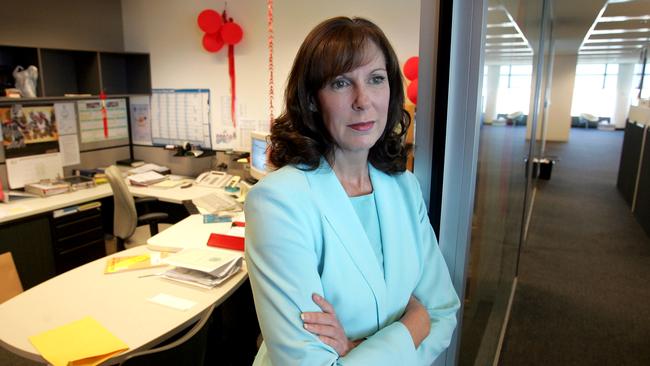
“Today we don’t have any of these pop-up clubhouses, they will meet in a backyard or a hotel...I think they dismantled in the state something like 70 clubhouses. So it was a highly successful strategy.
“(But) You have to keep the pressure up on these people, because let’s face it, outlaw motorcycle gangs have been around since 1943 and they have been resilient. Like any major organised crime squad people come and go but the banner of outlaw motorcycle gangs is so resilient, they’ll just wait and hang around and wait for a new group to come through.
“One of the most important indicators of success is that the senior members who were in it not for the love of the brotherhood but for the money have gone offshore.”
In her nearly four decades on the force it was her time with the Gang Squad and her days at Cabramatta in the 90s dealing with the dangerous 5T street gang she recalls as her most rewarding.
“It had a heartbeat, it was the best community, the best cops, I loved it.”
It was here that she met Father Chris Riley from charity Youth Off The Streets, the start of a lifelong friendship that has taken them to other parts of the world including the United States, the Philippines and Indonesia to implement intervention strategies for disadvantaged youth.
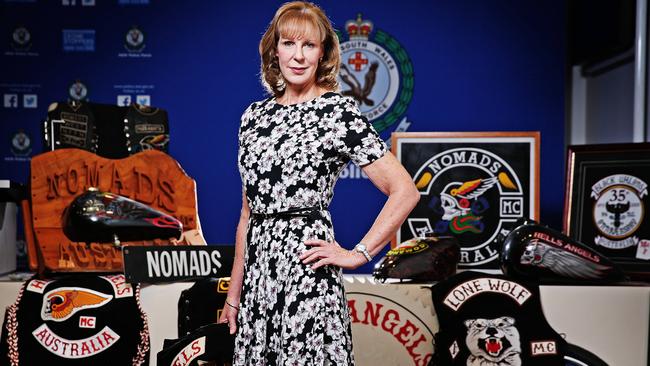
The street schools he started in Cabramatta with the support of Wallace were an innovative approach to policing at the time. Wallace said it was the senior 5T gang members who wanted to prevent juniors following in their footsteps to jail and an early grave.
“Father Riley said: ‘If you’re really serious, I’ll be here three days a week, three hours on those days. And in those three hours, there is no crime. There are no drug sales. And there is nothing. Or I pack up. Yet. How committed are you older guys to the young ones?’ They said ‘we’re committed’,” Wallace recalled.
Six of the gang members that came into contact with Father Riley ended up on one of the Youth Off The Streets farms and never returned to a life of crime.
“Being a woman in the cops one would say had its disadvantages but it also had its advantages, because I wasn’t bound by that same way of thinking...I was realistic, I wore colourful clothes and skirts and so I thought: ‘Do I get more with honey than vinegar?’”
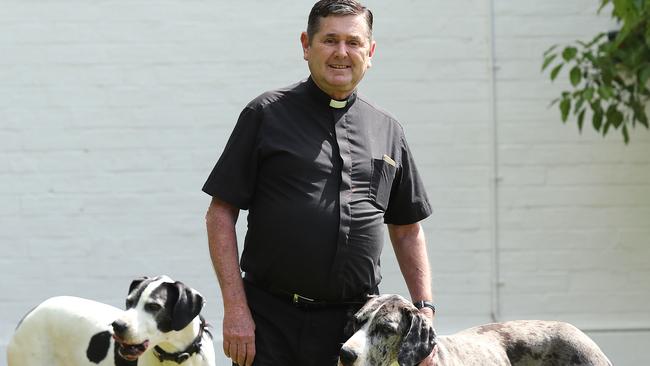
I CATCH KILLERS PODCAST
Episode 1: Haunted by fatal shot – Police sniper Brett Pennell
Episode 2: World’s post in-demand policeman – Former top cop Nick Kaldas
Episode 3: Hardcore cop, novelist and Page 3 model – Karen Davis
Episode 4: Mysterious death of soldier Jake Kovco – Wayne Hayes
“Father had been telling me about disruption and I thought ‘what have we got to lose?’”
It was also during her time policing in Sydney’s western suburbs that she earned the nickname “The Smiling Assassin” bestowed on her by local gang members, although it had remained a secret to her until a journalist revealed just how she was viewed by the local criminal element.
“An author called Philip Cornford was wanting to do a newspaper article at the time on the (5T) gang and wanted access to them. I managed through some good faith I had with one of them for (Philip) to have a chat with him in jail.
“And so he went out to the jail...and then he came back to me and said ‘do you know what they call you?’ and I replied ‘Yes, (they call me) Madam’.”
“He said: ‘They laugh, they call you The Smiling Assassin.’”
“What do you mean by that?” Wallace replied to Cornford, who then explained what the gang member said.
“Well, Madam, she puts us in the dock. And as she’s shutting the door, she always be friendly and she smiles and she says, ‘this is hurting me more than it is you.’ But we know she doesn’t mean it. She likes putting us in jail. So we call her The Smiling Assassin.”
BAD SYDNEY CRIME WRITERS FESTIVAL
When: Nov 7/8
Where: State Library of NSW.
Who: A spotlight on Gary Jubelin, Mark Morri talks with ‘A Woman of Force’ Deb Wallace and legendary crime reporter Janet Fife-Yeomans asks “What About The Victims?”
Originally published as I Catch Killers: Gary Jubelin interviews Deb Wallace from Strike Force Raptor

